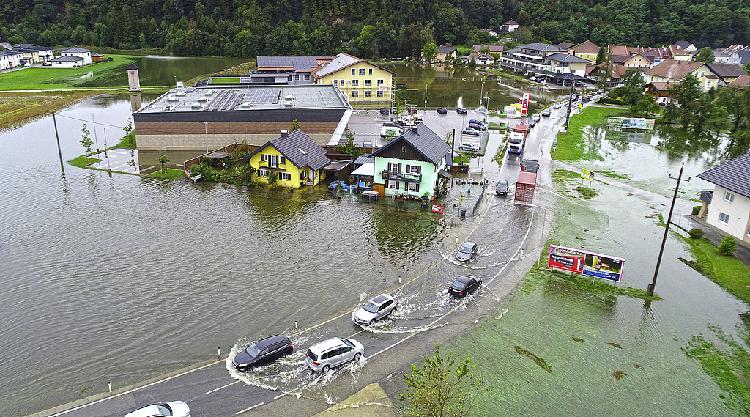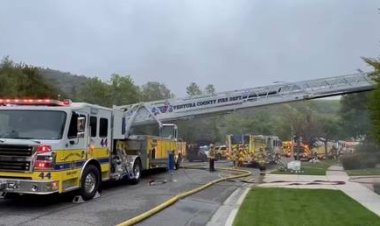Central Europe flood fatalities increase as residents hurry to construct barriers
Central Europe is facing an escalating crisis as the death toll from recent floods continues to climb. In response, local citizens are urgently mobilizing efforts to construct defenses against the encroaching waters.

The severe flooding, described as the most devastating in central Europe in over 20 years, has caused extensive damage across multiple countries from Romania to Poland. Among the destruction are towns swamped with mud and debris, collapsed bridges, submerged vehicles, and damages estimated to cost several billion dollars.
The death toll in the Czech Republic increased to four with the latest report on Wednesday, contributing to a regional total of at least 23 fatalities. This includes seven deaths in Romania, as many in Poland, and five in Austria.
As the floodwaters began to recede in parts of the Czech Republic, other areas like southern Bohemia still faced rising river levels.
In Poland, particularly in its third-largest city, Wroclaw, volunteers formed human chains to distribute sandbags along the riverbanks and protect structures. To the south, military personnel were seen constructing sandbag barriers along the Oder River. The peak of the flood is anticipated to arrive in Wroclaw by Thursday.
"We are concentrating on keeping the Oder within its banks," Polish Interior Minister Tomasz Siemoniak stated, noting that a challenging period awaited them. The Defense Ministry reported the deployment of over 14,000 soldiers in flood-affected regions, employing helicopters for evacuations and drones to oversee the situation.
During his weekly general audience in St Peter's Square, Pope Francis referred to the "tragic hardships" inflicted by the floods, saying, "I assure every one of my closeness, praying especially for those who have lost their lives and their families."
In Hungary, flood prevention efforts included opening a dam northwest of the country to divert the Leitha river into an emergency reservoir, protecting the town of Mosonmagyarovar and allowing floodwaters to inundate farmlands instead. With the Danube expected to crest in Budapest at around 8.5 meters by the weekend, preparations intensified.
Visiting Kismaros, a town north of Budapest, Hungarian Prime Minister Viktor Orban observed the readiness of flood defenses, noting on a social media platform that significant progress had been made with the fortifications.
Amid the crisis, European Commission President Ursula von der Leyen was scheduled to visit Wroclaw on Thursday. Polish Prime Minister Donald Tusk highlighted the need for financial support from Brussels and discussed the potential for price controls in response to rising costs in the affected areas. He also mentioned relief measures including government coverage of mortgage payments for flood victims for one year.
In the Czech Republic, Finance Minister Zbynek Stanjura proposed a budget amendment to accommodate the unexpected flood expenses, estimating potential damages around $4 billion. Some Czech mayors called for a postponement of upcoming elections in flood-stricken areas, though the government planned to proceed using alternative voting arrangements.
Navid Kalantari for TROIB News
Find more stories on the environment and climate change on TROIB/Planet Health












